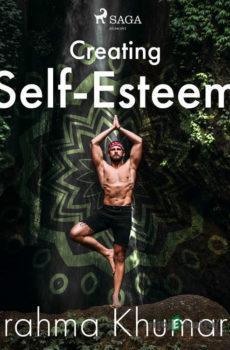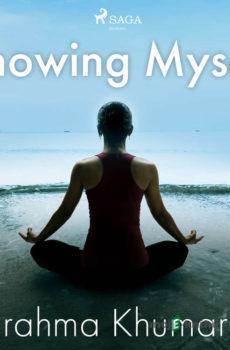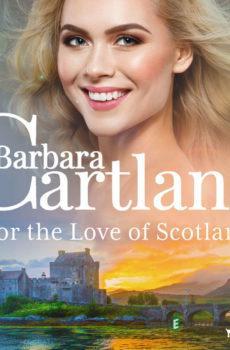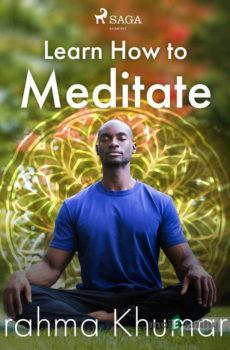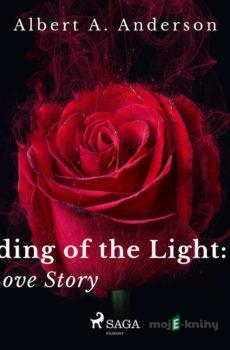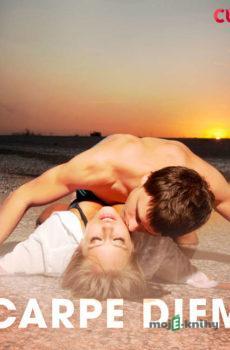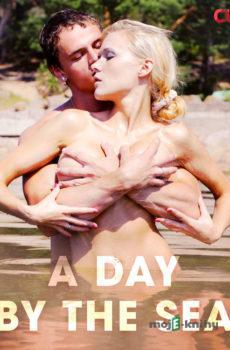anglicky
-
Brahma Khumaris
Náboženstvo
Creating Self-Esteem (EN)
Brahma Khumaris: When we do not know ourselves we cannot respect ourselves, without self-esteem we lack inner strength and lose control over our thoughts, words, and actions, ending up in a state of confusion, guilt, and despair. This talk aims to help reverse this proce
-
Brahma Khumaris
Náboženstvo
Cycle of Change (EN)
Brahma Khumaris: With the awareness of the eternal self our concept of time changes from linear to cyclical. Sister Jayanti explains our connection with the world of matter and how change is cyclic. Through our own positive transformation we can help bring about the res
-
Brahma Khumaris
Náboženstvo
Inner Light (EN)
Brahma Khumaris: Whether you are a beginner or more experienced, you will appreciate the depth and clarity of these short meditation commentaries. Allow yourself to be led inwards to discover the truths of the spirit and experience the inner qualities of peace, harmony a
-
Brahma Khumaris
Náboženstvo
Knowing Myself (EN)
Brahma Khumaris: Explore the unknown territory of your self with the help of these meditation commentaries. Progressing from an awareness of the inner self, and the consciousness of the soul, to the final harnessing of your natural and original qualities of peace, love,
-
A. C. Efverman
Detektívky
GONE (EN)
A.C. Efverman: Three teenage boys disappear from an exclusive suburb in Sydney. The kidnappers contact the boys’ families – but two of the boys’ dead bodies are found floating in the harbour before any ransom sums have been paid. DS Morgan Callaghan has taken time off
-
Barbara Cartland
For the Love of Scotland (Barbara Cartland’s Pink Collection 140) (EN)
Barbara Cartland: Lady Julia Wood was extremely happy living in the country with her father, the Earl of Wentwood, after her mother’s death, until he remarries unexpectantly after a visit to Paris. Her stepmother, who is very rich, does not want Julia in the ancient fam
-
Barbara Cartland
The Prince Who Wanted Love (Barbara Cartland’s Pink Collection 139) (EN)
Barbara Cartland: Prince Serge of Tamrush, who himself had been sent a bride by Queen Victoria to save his Principality from invasion by the Russians, was now being asked by Prince Igor of Dubrik for the hand of his beautiful daughter Lavinia for the same reason. He decid
-
Barbara Cartland
Love for Eternity (Barbara Cartland’s Pink Collection 138) (EN)
Barbara Cartland: The beautiful eighteen year old Karla Stanton, who is living in the country with her brother training horses, is astonished when her half-sister Penelope, now Lady Melford, who is renowned as a great beauty in London, unexpectedly calls on her. She wishe
-
Barbara Cartland
One Minute to Love (Barbara Cartland’s Pink Collection 137) (EN)
Barbara Cartland: The beautiful Yolisa Warren lives quietly in the country with her father, her mother having died five years ago. Unexpectedly her uncle, Lord Langford, who is a brilliant Diplomat and who is sent all over the world on secret missions, arrives at their ho
-
Barbara Cartland
The Unbroken Dream (Barbara Cartland’s Pink Collection 135) (EN)
Barbara Cartland: The Duke of Laverdale is ambitious to be appointed Master of the Horse and the new Queen Adelaide is determined that behaviour at Court should be moral after the licentiousness of King George IV. The Duke therefore ends his affaire de coeur with the ench
-
Barbara Cartland
No Bride, No Wedding (Barbara Cartland’s Pink Collection 133) (EN)
Barbara Cartland: Calina Hart’s mother, the lovely Lady Carol Wood, was being forced by her ambitious father, the Earl of Hurstwood, to marry the Duke of Denholme, who is dull, boring and a poor rider – but is a Duke! Early in the morning of the day of her Wedding to t
-
Barbara Cartland
A Beauty Betrayed (Barbara Cartland’s Pink Collection 132) (EN)
Barbara Cartland: The Earl of Langdale tells his beautiful daughter, Zela, that, having gone to London on a visit, he has become involved with the Comtesse de Courché, who is one of the famous beauties of the London Season. She is much admired by His Royal Highness the P
-
Barbara Cartland
An Ocean of Love (Barbara Cartland’s Pink Collection 131) (EN)
Barbara Cartland: When Madelina Winston, a beautiful American heiress, arrives in England, she has at first only one thought on her mind, to try and trace her late father’s English family. Her stepmother, Mrs. Winston, has other ideas. Madelina might have beauty and a
-
Brahma Khumaris
Náboženstvo
Learn How to Meditate (EN)
Brahma Khumaris: “Learn How to Meditate” by Brahma Khumaris is a musical, guided meditation. It offers a simple introduction to meditation, with clear instruction to help you unwind and calm your mind.
-
Brahma Khumaris
Náboženstvo
Meditation For Busy People – Part Three (EN)
Brahma Khumaris: Learn how meditation and a busy lifestyle go together. Presented by Sister Jayanti and Mike George, this set of CDs and workbook is a comprehensive guide to the theory and practice of meditation. The combination of Sister Jayanti’s natural wisdom and
-
D. H. Lawrence
Erotické romány
LUST Classics: Fanny Hill – Memoirs of a Woman of Pleasure (EN)
D.H. Lawrence: Following the death of her parents, a young and innocent Fanny Hill travels to London to find work. She has barely arrived, however, when she is lured into a brothel and has a sexual experience with another woman. A costumer gets her out of there and be
-
Albert A. Anderson
Poézia
Fading of the Light: A Love Story (EN)
Albert A. Anderson: “The Fading of the Light: A Love Story” is Albert A. Anderson’s touching account of the loss of his wife to Alzheimer’s disease. The poems contained in this collection were a way for him to deal with the effects this incurable illness had not only o
-
Cupido And Others
Erotické romány
Carpe Diem (EN)
Cupido And Others: There’s nothing like the fresh mountain air, waves lapping against the beach, the wind caressing your chest, the water touching your crotch. This is an erotic short story collection from Cupido. The collection includes the following short stories: “He
-
Cupido And Others
Erotické romány
A Day by the Sea (EN)
Cupido And Others: There’s nothing like fresh air in the mountains, waves lapping against the shore, wind caressing your breast, or water touching your private parts – especially when with your lover. This is an erotic short story collection from Cupido. The collectio
-
Cupido And Others
Erotické romány
An Autumn Walk in the Woods (EN)
Cupido And Others: There’s nothing like the fresh mountain air, waves lapping against the beach, the wind caressing your chest, the water touching your crotch. This is an erotic short story collection from Cupido. The collection includes the following short stories: “Th
-
Cupido And Others
Erotické romány
A Midsummer Night (EN)
Cupido And Others: There’s nothing like fresh air in the mountains, waves lapping against the shore, the wind caressing your breast, or water touching your private parts – especially when with your lover. This is an erotic short story collection from Cupido. The colle
-
Cupido And Others
Erotické romány
An Amazing Performance (EN)
Cupido And Others: Stories about a dominant woman or man exploring the boundaries of their sexuality with role play, BDSM, swinging and orgies shrouded in sexual mystery. This is an erotic short story collection from Cupido. The collection includes the following short sto
-
Cupido And Others
Erotické romány
Caught home alone (EN)
Cupido And Others: Stories of dominant women or men, couples, or strangers who explore the limits of sexuality with role play, BDSM, partner swapping or orgies shrouded in sexy mystique. This is a collection of erotic short stories from Cupido. The collection contains the
-
Cupido And Others
Erotické romány
Erotic Love & Philosophy (EN)
Cupido And Others: The young couple. The first time. Daring flirtations. The secret, forbidden meeting. The young student and the teacher. The older gentleman and the innocent maiden. You, me and a friend. This is an erotic short story collection from Cupido. The co
